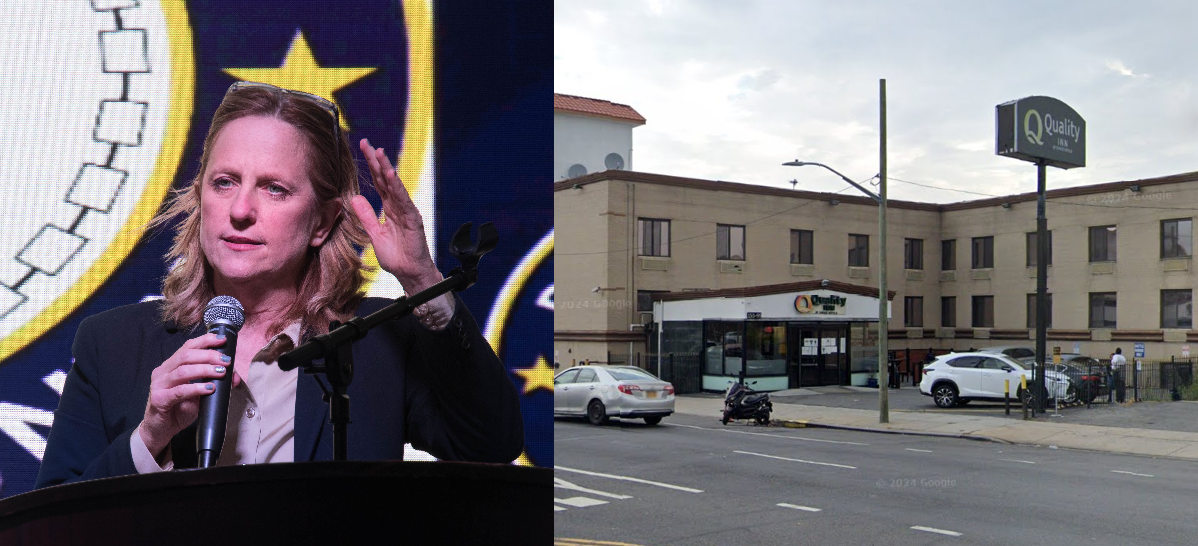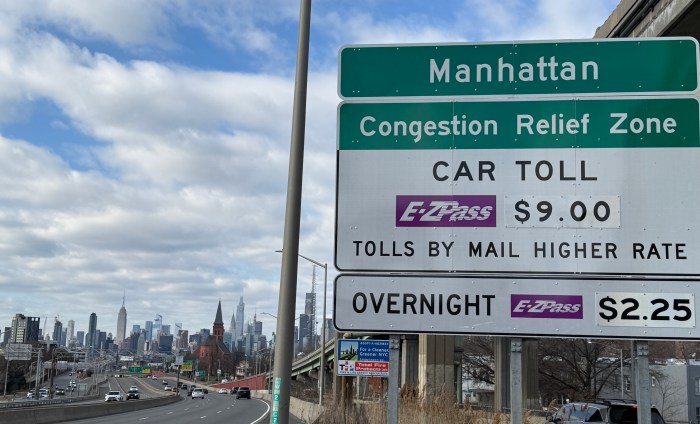There have been calls in the past to close or rehabilitate Rikers Island, the city’s infamous jail complex. None have succeeded.
That doesn’t mean that activists have stopped pressing. After City Council Speaker Melissa Mark-Viverito’s State of the City address discussed the possibility of closing Rikers, some see a small window of potential.
At Mass Story: Rikers Island, an event held Wednesday at the New School, New Yorkers talked about their experiences with the criminal justice system and their hopes that those stories could encourage action.
After hearing a panel of speakers tell their stories, Joseph Rucco, 48, dressed in a dark suit, gray shirt and tie, stood up.
“Unfortunately, I am a criminal justice offender myself,” he said. He pointed out the “beauty mark” on his left cheek, the result of a slashing he’d received at Rikers Island. He said he’d been in and out of jails for large portions of his adolescent and adult life — though not in recent years — but had some of his most difficult times on Rikers.
“I really just wish that Rikers would close down,” he finished.
Sharon Whyte, who introduced herself as a former corrections officer, took the microphone soon after he finished, physically supported by a neighbor as she struggled to speak through tears. She wished what the formerly incarcerated speakers had said was wrong. But it was “so true.”
She said some people in Rikers belonged there — that wasn’t her quarrel — but rather that there was no reason to “inflict pain” on inmates.
“Anybody can get arrested. Anyone can get locked up. It’s a matter of circumstance.”
Bricks of shame
For many reformers, Rikers is a symbol of NYC’s most serious issues.
Despite efforts to rehabilitate the city’s criminal justice system by reforming the bail system and encouraging civil penalties for some low-level offenses, Rikers still looms large.
The Mass Story project, developed by advocacy groups including Create Forward and JustLeadershipUSA, is meant to keep attention focused on Rikers — getting regular people and community leaders “in the room” to understand and change the experience of life on the island, says Piper Anderson, who created the event and plans to bring it to other cities.
Two commonly cited problems with Rikers are the culture of violence and impunity of the facility’s corrections officers, whose union head Norman Seabrook was recently charged with bribery.
Whyte, the former corrections officer, said changing that culture was the true path to reform: “Rikers Island is just a location.”
She said she was an officer for nearly 20 years and was ultimately terminated. During her time on Rikers, she cited “cliques” and “inner circles” among the officers as being as damaging as inmate gangs. Extended time spent on the island led some officers to think of themselves as “superheroes” who could operate without limits, said Whyte.
For Rucco, the formerly incarcerated man, his time behind bars was a part of a cycle. Being in and out of jail since youth made it difficult to get education or a job — today he’s homeless and has been living in a shelter.
At Rikers in particular, Rucco says, a lack of programming and the age of many inmates meant it was even more dangerous than his other prison stays, where he says he could read more freely and educate himself. Upon regaining his freedom, he found it hard to rebound from his jail time.
“Do you know Oscar Wilde,” he asks? “Prisons were built with bricks of shame,” he paraphrases.
Listening, observing, acting?
The event featured group activities and conversation sessions after the storytelling, official and not.
Some were straightforward — brainstorming things needed by communities affected by Rikers, which led to discussions of restorative justice. Some were loose and creative — a message about Rikers Island that attendees would leave in a time capsule for future generations, written on colorful post-it notes fashioned to the wall. One said “it came and it went.”
Othia White, a retired lawyer who is interested in the reform movement and often comes to lectures and meetings like this, said she hopes these conversations do more than “preach to the choir.” Whether or not Rikers closes, she says the underlying system is overdue for reform.
Staffers from the Mayor’s Office of Criminal Justice and the offices of the council speaker and Bronx DA were in attendance, observing — figures like that are more or less the choir, but should they be moved to participate further at least they have the key to the church.































